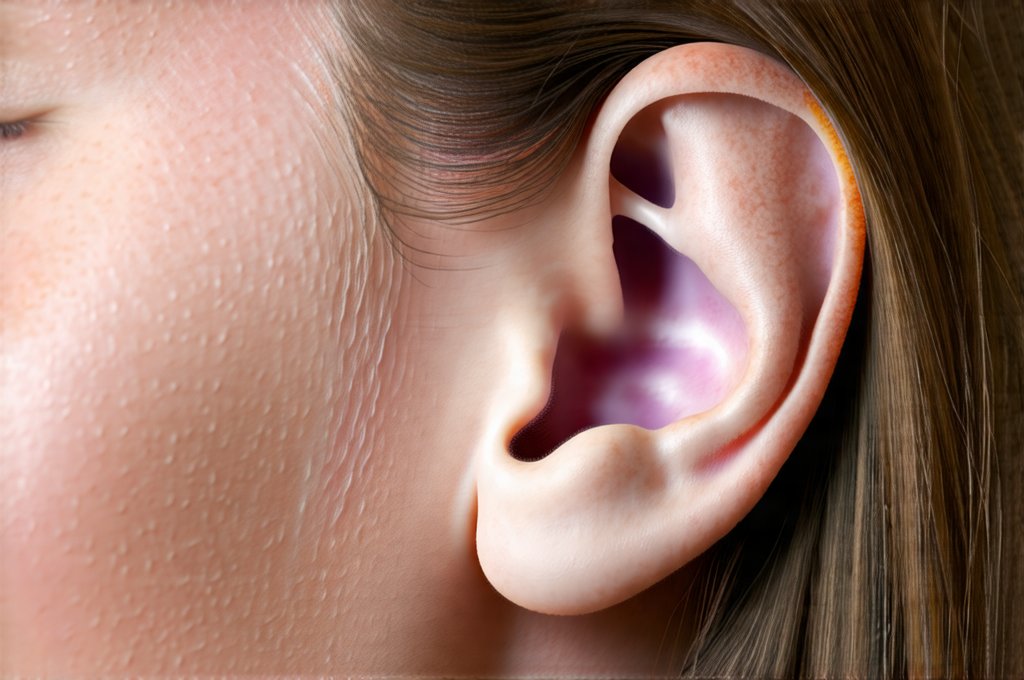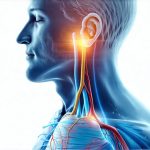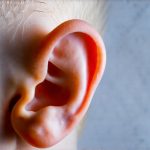Gastroesophageal reflux disease (GERD) is a surprisingly pervasive condition, affecting millions worldwide. Many associate it primarily with heartburn and indigestion – and rightly so, as those are hallmark symptoms. However, the reach of GERD extends far beyond digestive discomfort, often manifesting in seemingly unrelated areas like the ears. This can lead to frustrating and confusing symptoms such as ear fullness, a plugged sensation, tinnitus (ringing in the ears), and even temporary hearing loss. Understanding this connection is crucial for accurate diagnosis and effective management, preventing unnecessary trips to specialists who might focus solely on otological issues when the root cause lies within the digestive system. It’s important to remember that these aren’t typical ear infections; they represent a different pathway of discomfort stemming from acid reflux.
The link between GERD and ear symptoms isn’t immediately obvious, making it easy to overlook. The underlying mechanism involves a complex interplay between the digestive and auditory systems, mediated by nerves, muscles, and anatomical proximity. Refluxed stomach acid can irritate the vagus nerve – a long cranial nerve that travels from the brainstem down through the neck and into the abdomen, influencing both digestion and ear function. Furthermore, inflammation triggered by GERD can affect the Eustachian tube, which regulates pressure in the middle ear. This intricate relationship explains why individuals with chronic GERD often experience a constellation of seemingly disparate symptoms, including those related to the ears. Recognizing this connection is vital for holistic patient care and achieving lasting relief. You might also find helpful information on how to eat in a way that minimizes digestive upset.
The Vagus Nerve Connection
The vagus nerve is truly remarkable; it’s often called the “wandering nerve” because of its extensive reach throughout the body. It plays a critical role in regulating numerous bodily functions, including heart rate, digestion, breathing, and even swallowing. In the context of GERD and ear symptoms, the vagus nerve acts as a conduit for signals between the stomach and the ears. When stomach acid frequently refluxes into the esophagus, it can irritate the vagus nerve’s branches in that region. This irritation sends signals to the brainstem, which then interprets these signals – or misinterprets them – as originating from the ear.
This neurological crosstalk explains why some people with GERD experience symptoms like tinnitus (ringing in the ears) or a feeling of fullness without any actual auditory pathology. The brain struggles to pinpoint the source of the nerve stimulation, leading to these unusual presentations. It’s also important to note that the vagus nerve isn’t just a receiver of signals; it also influences muscle function within the ear, potentially contributing to Eustachian tube dysfunction and subsequent pressure imbalances. – This can exacerbate feelings of fullness or muffled hearing.
The connection highlights why treating GERD effectively can often alleviate ear-related symptoms, even if those symptoms aren’t traditionally associated with digestive issues. It’s a demonstration of how interconnected our bodily systems are, and the importance of considering the whole picture when diagnosing and treating medical conditions. Learning to rest properly can also help manage stress that may exacerbate GERD symptoms.
Eustachian Tube Dysfunction & Reflux
The Eustachian tube is a small passage that connects the middle ear to the back of the throat. Its primary function is to equalize pressure between the middle ear and the surrounding environment – this allows for proper hearing and prevents discomfort during changes in altitude. GERD can disrupt this delicate balance through several mechanisms, leading to Eustachian tube dysfunction (ETD). – Acid reflux can cause inflammation in the nasopharynx (the upper part of the throat), directly impacting the opening of the Eustachian tube. – Chronic inflammation can lead to swelling and narrowing of the tube, hindering its ability to open and close effectively.
When the Eustachian tube isn’t functioning properly, it can create a vacuum or pressure imbalance in the middle ear. This can result in a feeling of fullness, muffled hearing, dizziness, or even temporary hearing loss. The sensation is often described as “something being blocked” in the ear. Furthermore, ETD can create an environment conducive to fluid buildup in the middle ear, which further contributes to these symptoms. It’s a vicious cycle: GERD causes inflammation, inflammation leads to ETD, and ETD exacerbates auditory discomfort. Recognizing this interplay is crucial for targeted treatment strategies. If you suspect a connection between your GERD and ear issues, it’s worthwhile exploring acid reflux as a potential cause of ear pain.
Identifying the Source: Distinguishing GERD-Related Ear Symptoms
Often, differentiating between an ear infection, allergies, or GERD as the cause of ear fullness can be challenging. A thorough medical history is paramount. Key indicators suggesting a link to GERD include: – The presence of typical GERD symptoms like heartburn, acid regurgitation, and indigestion. – Symptoms worsening after meals, particularly large or fatty ones. – Improvement with antacids or acid-reducing medications. – No evidence of acute ear infection (such as fever or pus drainage).
It’s crucial to avoid self-diagnosing and instead consult a healthcare professional for proper evaluation. An otolaryngologist (ENT specialist) can perform audiometric testing and examine the Eustachian tube function, while a gastroenterologist can assess for GERD through tests like endoscopy or pH monitoring. – These tests help pinpoint the underlying cause of symptoms and guide treatment decisions. A careful consideration of the patient’s overall health history and symptom pattern is essential to avoid misdiagnosis and ensure appropriate care. Understanding GERD with esophagitis can also shed light on the underlying digestive issues.
Treatment Approaches: Managing GERD & Ear Symptoms
The primary focus in addressing GERD-related ear symptoms is, unsurprisingly, managing the reflux itself. This often involves a multi-pronged approach including lifestyle modifications and medication. – Lifestyle Changes: These can include elevating the head of your bed, avoiding trigger foods (such as caffeine, chocolate, alcohol, and spicy foods), eating smaller more frequent meals, losing weight if overweight or obese, and quitting smoking. – Medications: Over-the-counter antacids can provide temporary relief, but for chronic GERD, proton pump inhibitors (PPIs) or H2 receptor antagonists may be prescribed by a doctor to reduce stomach acid production.
It’s important to work closely with your healthcare provider to determine the most appropriate treatment plan based on the severity of your symptoms and individual needs. Addressing the underlying GERD often leads to significant improvement in ear-related symptoms, but it can take time. – Be patient and consistent with your treatment plan. In some cases, referral to a speech therapist might be beneficial for exercises that improve Eustachian tube function. Consider dinner meals specifically designed for those with GERD and IBS to minimize digestive distress.
When To Seek Further Evaluation
While many cases of GERD-related ear fullness respond well to conservative management, certain situations warrant further evaluation by a healthcare professional. – Persistent Symptoms: If your symptoms don’t improve after several weeks of treatment or worsen over time, seek medical attention. – Accompanying Symptoms: The presence of other concerning symptoms like fever, severe pain, drainage from the ear, dizziness, or significant hearing loss requires prompt evaluation.
These could indicate a different underlying issue that needs to be addressed. – Don’t hesitate to advocate for yourself and ask questions. Open communication with your healthcare team is essential for achieving optimal outcomes. Remember, early diagnosis and appropriate management are key to minimizing the impact of GERD on both your digestive health and your auditory well-being. In some instances, GERD without esophagitis can still cause these symptoms, even in the absence of esophageal inflammation. Also consider the connection between GERD and hiccups as another potential symptom manifestation.


















